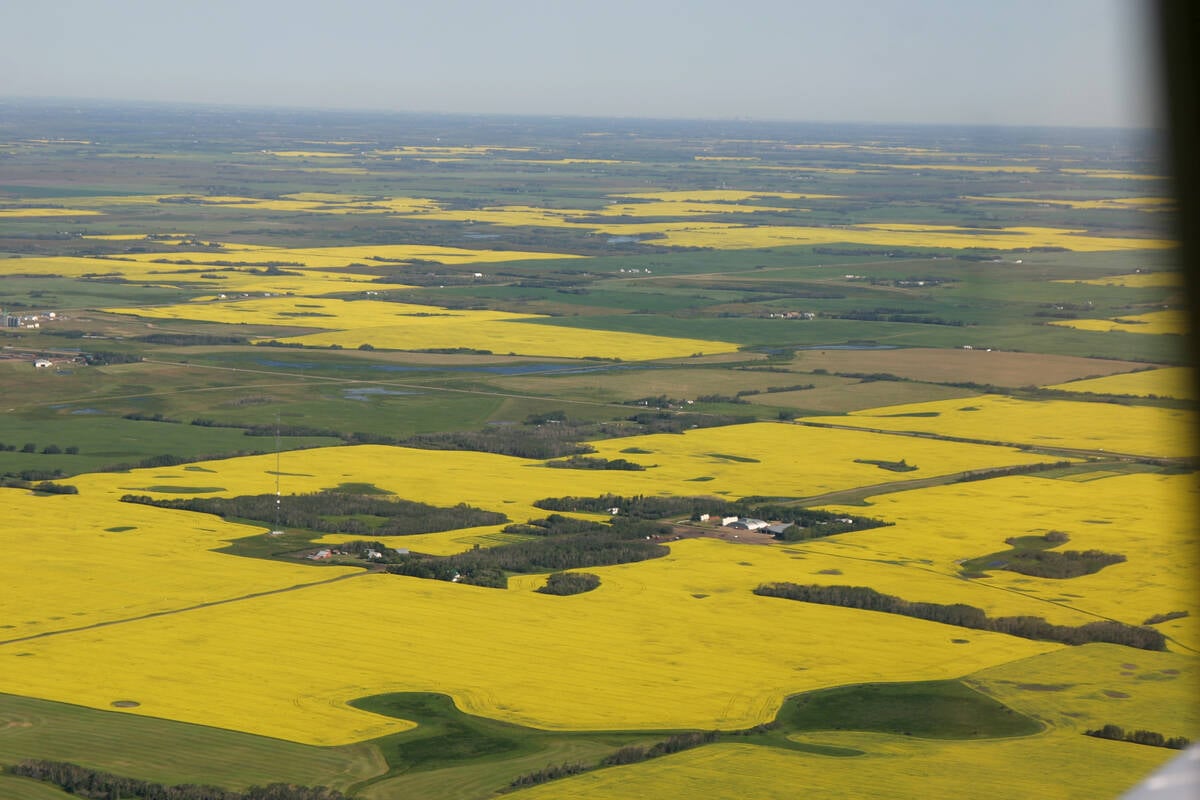ST. THOMAS, Ont. — At a meeting where other speakers questioned the wisdom of liberalized trade, the owner of a small agricultural manufacturing company talked about its upside.
Glen Buurma said Penta, which manufactures feed mixers, multi-purpose dump boxes and tillage equipment, has been in expansion mode since launching its tillage line in 2009.
Sixty percent of today’s sales are to the United States, another 20 percent are bought domestically and the rest goes to Russia and Australia.
Buurma took over the business from his father in 1997, when the major focus was on the refurbishment of feed equipment. The company eventually began making vertical feed mixers, but in 2007 a patent infringement issue put the company in a tailspin.
Read Also

Increasing farmland prices blamed on investors
a major tax and financial services firm says investors are driving up the value of farmland, preventing young farmers from entering the business. Robert Andjelic said that is bullshit.
“I’ve had a couple times in my life when things were pretty rough,” he said. “Those are the times when you learn the most … (but) whenever there’s a challenge in a certain area, there’s also an opportunity.”
Buurma said he and his team put their financial and legal house in order in the wake of the crisis.
Another challenge was a downturn in the U.S. dairy industry around 2009, which was a period of high grain and oilseed prices and low prices for milk.
That led to the focus on tillage.
Buurma now employs 120 workers and has four manufacturing locations, a research and development facility and a farm where tillage equipment is tested. Most recently, the company acquired another Ontario company, N.E. Hagedorn & Sons Ltd., which manufactures the Hydra-Spread line of solid manure spreaders.
Buurma said his company’s success is heavily dependent on the relationship he has with his em-ployees, customers and dealers. It’s important to have people in place who understand the culture of those they deal with when marketing into the U.S. and overseas, he added.
Equipment sold to the United States bears a half maple leaf, but the stars and stripes are also prominent.
Burma’s personal demeanour doesn’t hurt either.
Well over six feet tall and lanky, he comes across as Jimmy Stewart of Hollywood fame. At least that was the impression of at least two members of the small audience who heard him speak recently in St. Thomas.
He left school early, speaks plainly, is not above admitting his own mistakes.
“I’ve tried to find people smarter than me — and believe me, that’s not hard to do — to surround myself with,” he said. “I’m into the relationship side of things. That’s where the luck we’ve had comes from.”
Buurma said he and his company have made serious mistakes, but they’ve been able to move forward by admitting those mistakes and making them right.
That’s why, over the years, they’ve never lost a dealer, he added.
He said the Russian business involves a considerable amount of paperwork. When the company approached Russian buyers sales began slowly but have since picked up.
Buurma recently visited the Russia and described Moscow as a clean and aggressive city. He said the media picture that sometimes drawn may not be accurate.
“The Russians are a passionate, passionate people. They think (president Vladimir) Putin is the best thing that’s ever happened to them.”
Buurma said electricity costs are a major challenge for his company and linked recent rate increases to the proliferation of wind turbines in Ontario.
On a positive note, he described the current level of the Canadian dollar as a “beautiful thing.” Equipment sold to Russian, Australia and the United States are all paid for in U.S. funds.
Buurma said he takes advantage of government programs and has an arrangement with an accountant who, for a small percentage, evaluates and helps access government supports.
Buurma spoke in St. Thomas, a community with a population of 38,000, facing economic challenges, including the loss of large manufacturing plants.
Stuart Trew with the Canadian Centre for Policy Alternatives and Jennifer Chestnut, a volunteer with the London chapter of the Council of Canadians, said those losses can be linked to the Free Trade Agreement that Canada signed with the U.S. in 1989 and the North American Free Trade Agreement that was signed in 1994.
The agreements tend to push production to low cost locations while giving little consideration to environmental and social concerns, Trew and Chestnut said.
They cited statistics showing a widening income gap between the economic elite and middle class and the concentration of wealth among the big corporations since the agreements were introduced. Rather than improving Canada’s trade balance, there’s been deterioration, they added.
Future deals with Europe and through the Trans-Pacific Partnership talks threaten to worsen the situation.















